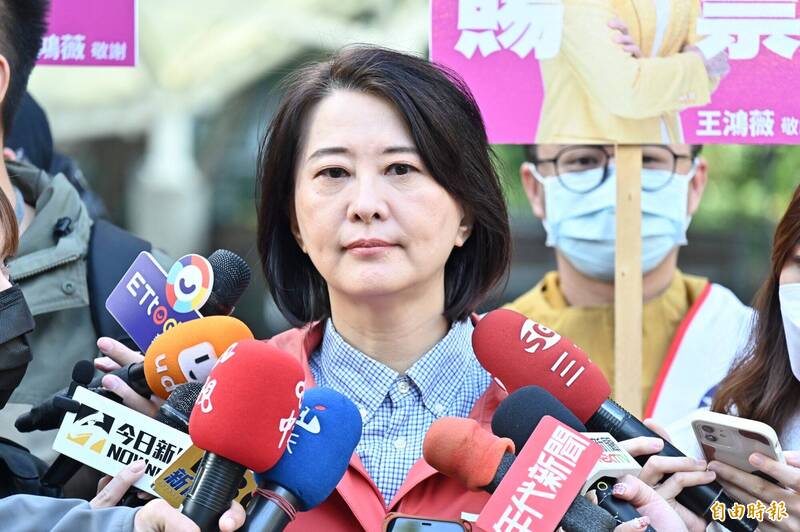Taipei City Legislative Committee by-election candidate Wang Hongwei thanked the Caopu Market on the 10th and interviewed before the trip.
(Photo by reporter Tu Jianrong)
[Reporter Cai Sipei/Taipei Report] The Executive Yuan intends to share the excess tax collection with the whole people, but former Finance Minister Su Jianrong questioned that paying taxes to the people is a fake issue, and the excess money should be used to repay debts.
Wang Hongwei, the legislator of Taipei's third constituency by-election, asked today how much money Su had spent on repaying debts during his tenure as Finance Minister.
Wang Hongwei was interviewed by sweeping the streets of Caopu Market today, and was asked about Su Jianrong's question that "repaying taxes to the people" is a false issue.
Wang believes that after the former Minister of Finance resigned, he complained about paying taxes to the people, and Premier Su Zhenchang should respond.
Wang said that the DPP wants to repay taxes to the people, but it uses multiple concepts to package it. The funds come from a large amount of government taxes. She questioned where the 1.1 trillion yuan in excess taxes in the past six years was spent?
Wang also said that there was news that over 450 billion yuan in taxes was collected last year, and that taxes should be paid back to the people.
Please read on...
Wang Hongwei pointed out that the Hsinchu baseball stadium fraud case and the Tainan City government corruption case have recently occurred. How can the people rest assured that the tax money will be used by the government?
If the tax is exceeded, it should be returned to the people or repay the debt.
Wang Hongwei also criticized Su Jianrong for saying that the debt should be repaid if the tax was exceeded, but how much money did Su have to repay the debt when he was the Minister of Finance?
Wang Fan choked on Su, "Now I'm talking so much, it's really laughable."
Wang questioned that the Executive Yuan is now in a mess. If it still wants to borrow money to find cash, "What kind of economic sharing is this? Is it debt sharing?"
